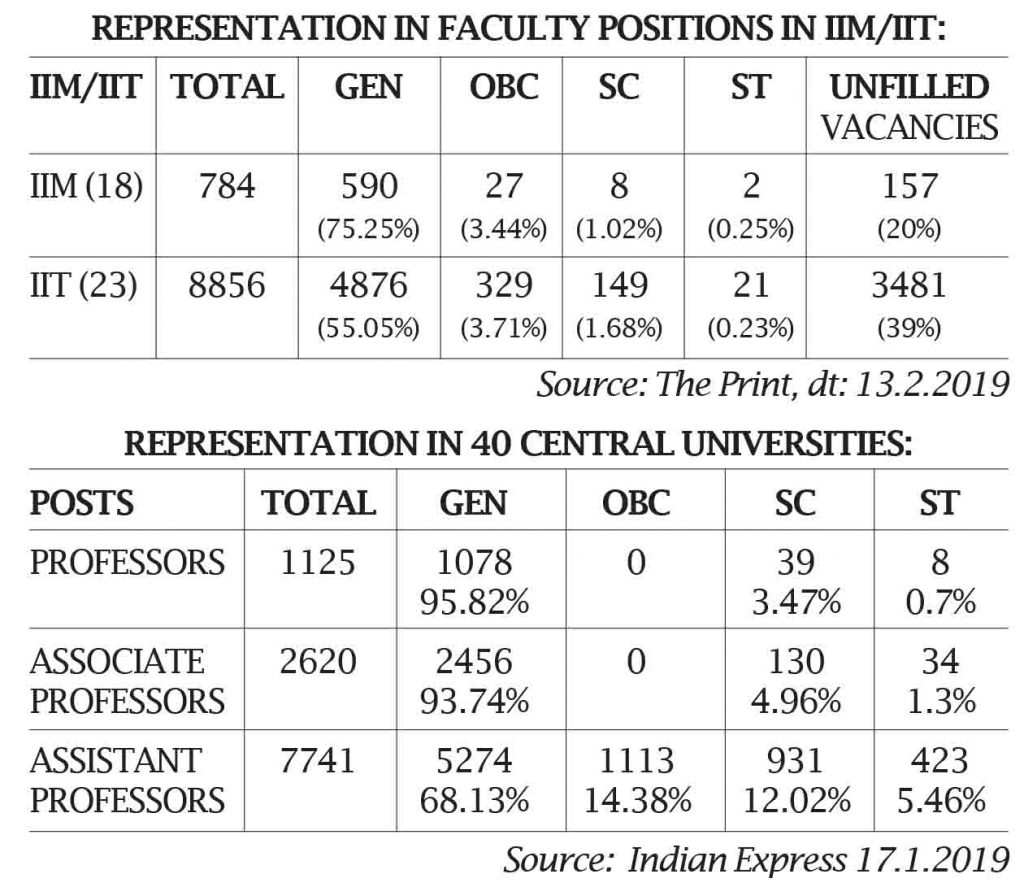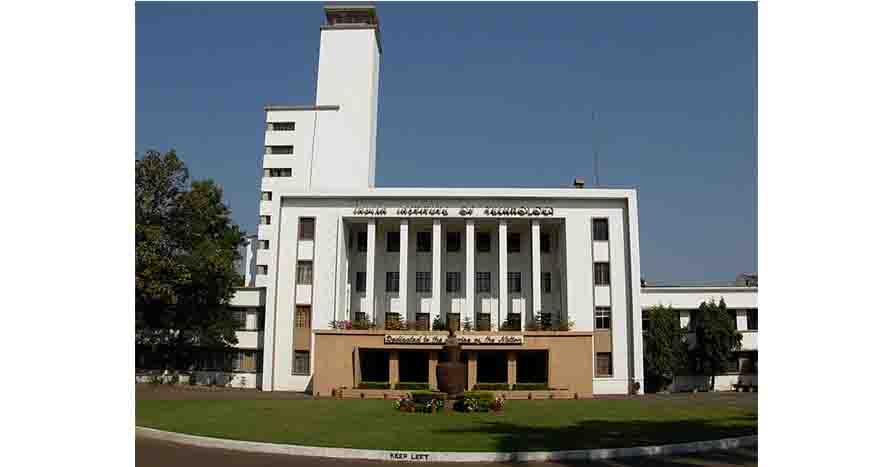Indian Institute of Technology, Kharagpur
G.Karunanidhy
General Secretarya, All India OBC Employees’ Federation
Recent reports from leading newspapers in the country have presented a deeply worrying picture of under representation of SC, ST and OBC communities in research programmes (in MS and PhD admissions) and faculty appointments.
Adding fuel to fire, a Committee constituted by the Ministry of Education (MoE) to suggest measures for effective implementation of reservation policies in IITs has recommended that IITS be exempted from implementing reservation policies for OBC, SC and STs in faculty recruitments viz., Professor, Associate Professor and Assistant Professor level posts and the report is under examination of the Government.
The Committee, it is learnt, was constituted in April 2020 with Director of IIT Delhi, V. Ramgopal Rao, as its Chairperson and the Director of IIT Kanpur, Registrars of IIT Bombay and IIT Madras, and representatives from Ministry of Social Justice and Empowerment (MoSJE), Ministry of Tribal Affairs, Department of Personnel and Training and Department of Persons with Disabilities as members.
The Committee’s recommendations are based primarily on three arguments:
i) the need for IITs to maintain their academic excellence
ii) low enrolment of reserved category students in Ph. D programmes in IITs, and this was severely limiting the number of reserved category candidates available to be hired as faculty in the IIT system.
iii) the lack of candidates from the reserved categories who fulfil the qualification criteria.
In its report, obtained by an activist through a Right to Information Act application, the Committee has suggested:
i) IITs be included in the list of Institutes of Excellence that are exempted from reservation policies under the Central Educational Institutions (Reservation in Teachers’ Cadre) Act (CEI Act) of 2019.
ii) the implementation of reservation policies for all reserved categories be restricted just to Assistant Professor Grade I and Grade II and not for levels above.
iii) vacancies not filled in a particular year due to non-availability, be de-reserved in the subsequent year.
The recommendation of the Committee headed by Prof.V.Ramgopal Rao be rejected in toto for the following reaons:
The Committee’s report gives a wrong opinion that ‘quality and excellence’ is being watered down because of reservation policy but the fact remains as seen from government data, shows that the representation of OBC, SC and ST in faculty position is less than 5% and the remaining 95% faculty positions occupied by the upper caste only.
From the very beginning, the Central Educational Institutions including IITs have not implemented reservation policy in Faculty positions sincerely and seriously which has been repeatedly pointed out by the Parliamentary Committee for OBC.
We furnish below data that shows dismal representation of OBC, SC and ST, both in IITs and IIMs as well as Central Universities.

In an article written by two Faculties of University of Delhi and published in newspaper, it is stated that “OBCs occupy only around 1% of top teaching posts”. It further states, ‘Though OBCs account for about 50% of the country’s population, their representation in all faculty positions in all central educational institutions is only 9.8%. According to a recent report by the University Grants Commission, only 13.87% of positions at the Assistant Professor-level in central universities were occupied by OBCs. The representation became almost negligible at higher levels, i.e. those of Associate Professor and Professor, accounting for just 1.22% and 1.14%, respectively.’ (The Hindu dt: 2.7.2019).
Another report as obtained by a RTI activist and published in a journal reveals the backlog position of OBC, SC and ST in faculty positions as under:
If we talk about the posts of professors, according to the UGC, 82.82 per cent posts reserved for candidates belonging to Scheduled Castes, 93.98 per cent posts reserved for Scheduled Tribes and 99.95 per cent posts reserved for Other Backward Castes even today. Are empty. If we talk about the posts of Associate Professor, the situation looks equally bad: 76.57 percent posts reserved for Scheduled Castes, 89.01 percent posts reserved for Scheduled Tribes and 94.30 percent posts reserved for Other Backward Castes are vacant. (published in mediavigil.com dt:6.8.2020).
In view of the continuous petitions by student bodies and other OBC and SC/ST welfare associations as well as the report given by the Parliamentary Committee for OBC, the University Grants Commission vide its order dated 19.10.2020 again instructed all Central /State/Deemed-to-be Universities to implement reservation policies in teaching and non-teaching posts and also fill up the remaining backlog reserved vacancies.
Several social justice organisations have been repeatedly pointing out that the concept of ‘creamy layer’ imposed on OBCs has restricted the eligible OBC candidates from availing reservation policy and for the low enrolment of reserved category students in Ph. D programmes in IITs, and this is the only reason for limiting the number of reserved category candidates available to be hired as faculty in the IIT system as well in all other Institutions also.
Instead of the addressing the issue on this perspective, the Committee has taken negative stand of exclusion of reservation policy which is highly retrograde and objectionable.
Even after nearly 27 years of reservation policy of 27% for OBCs in direct recruitments, it is really unfortunate that the less than 1% of OBCs represent in top teaching posts.
The Central Universities including the Benaras Hindu University,Varanasi, Babasaheb Bhimrao Ambedkar University, Lucknow, National Law Universities are not implementing reservation policies both in admission and faculty recruitments which from our Federation, we have brought to your kind attention.
The authorities concerned in CEIs should be made known that the implementation of reservation policy is a constitutional obligation and any violation should attract strong disciplinary action.
All concerned including our Parliamentarians should urge the Hon’ble Minister of Education to:
1) Reject the recommendations of the Committee’s report headed by Prof.Ramgopal Rao and
2) Direct all the Central Educational Institutions including IITs to ensure that all the vacant posts of reserved categories – OBC, SC and ST – in particular are filled up early and if necessary, by a special recruitment drive as recommended by the Parliamentary Committee for OBC.
3) In the recent years, the steady privatization of the IITs is also subverting the implementation of reservation at IITs as reservation norms do not apply to privatized (non-government funded) seats. Hence, the Parliament of India has to enact a law to make reservation for marginalized groups mandatory in the existing privatized seats – self-financed courses and privately sponsored projects at all IITs.





